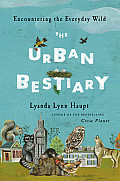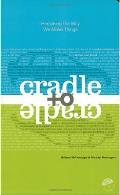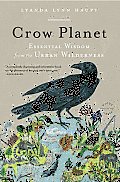
A couple of years ago I had the pleasure of being interviewed by Michael Toms for the iconic
New Dimensions radio show. Toms, often called the Socrates of Radio, showed up for the interview with a legal pad that was completely filled with tiny handwritten notes and queries about my book
Crow Planet. He knew the contents of the book better than I did and, like the real Socrates, drew thoughts from my mind and heart that I didn't even know were there. When I learned of his death early this year, I recalled our post-interview walk in his garden, Michael leaning heavily on a walking stick. He and his wife, Justine, had loaded my arms with gifts: copies of all the books they'd both written, topped with a bright green bumper sticker printed with the words:
Celebrate Fiercely. The studio, which occupied the bottom floor of Michael and Justine's home, was perched on an arid Northern California hillside. I remember looking at the sticker, breathing in the pungent fragrance of white sage, and lifting my face to that deserty sun, so different from the moist-clouded sun of my Seattle home.
Yes, I told myself,
fierce celebration. I'm gonna get me some more of that. I took the sticker home and stuck it with a magnet to the fridge.
That bumper sticker grew out of an interview Justine Toms had with William McDonough, green designer, architect, provocateur, and author of the manifesto Cradle to Cradle: Remaking the Way We Make Things. McDonough speaks often about celebration, a concept he interprets in light of earthly evolution. "It's not about survival of the fittest," he told Justine, both of them looking out over his own front yard full of blooming wildflowers. "It's those who celebrate the most who are the true evolutionary winners. Nature is all about fierce celebration."
The sticker remained on my refrigerator for about a year, and I would think about it now and then. What would that mean for me? Celebrate fiercely? Eventually I stopped asking, became blind to the sticker, and finally took it down one day when the fridge needed a good scrubbing. But when Michael Toms passed, I found the sticker, smoothed it out, put it back up, and stared at the message for nearly an hour. I noticed that visiting friends would stare at the words, too, and I realized that we were sharing the same simultaneous exhilaration and dis-ease. Yes, we felt, fierce celebration was something essential and somehow missing. And though we could feel a stirring within that told us exactly what it meant, we didn't know exactly what we needed to do.
 Talking with others, I discovered that the most common image that McDonough's phrase brings to mind is wild dancing. Wild, sweaty, twirly, arm-raised dancing with friends we love, loud music, and with or without a little mind-altering substance. Why not? Surely a good cobweb-clearing Dionysian frenzy is good for all of us now and then. This isn't just a sophomoric "party harder" — dancing is a time-honored, cross-cultural means of accessing the higher mind, of cultivating mystical connection with others and with the earth. But I am a tragically unhip, semi-hermit nature writer. For me a wild dance party, no matter how purifying, can feel like a mild form of torture.
Talking with others, I discovered that the most common image that McDonough's phrase brings to mind is wild dancing. Wild, sweaty, twirly, arm-raised dancing with friends we love, loud music, and with or without a little mind-altering substance. Why not? Surely a good cobweb-clearing Dionysian frenzy is good for all of us now and then. This isn't just a sophomoric "party harder" — dancing is a time-honored, cross-cultural means of accessing the higher mind, of cultivating mystical connection with others and with the earth. But I am a tragically unhip, semi-hermit nature writer. For me a wild dance party, no matter how purifying, can feel like a mild form of torture.
So I followed McDonough's cue and traced the words into the natural world, where "fierce" might very well have to do with actual ferocity, frenzy, aggressiveness, or destruction, but where it can just as well embrace an openness to each other and the wild earth that is passionate, impassioned, ardent, or quietly fervent; where "celebration" can mean boisterous revelry but might also be an invitation to approach a moment, a place, a person, a creature, a life passage with reverence, stillness, and delight.
Certainly we all must find our own, idiosyncratic way into fierce celebration. Mine was clarified as I researched and wrote my new book, The Urban Bestiary. "Research" is really too sterile a word for the way I approached this project — it was more of a full-on immersion, writing outdoors in all seasons, meeting every more-than-human creature who crossed my path as a potential mentor, as a part of the wild story we were creating together. I made an effort to articulate some of the thoughts and actions that allow McDonough's principle to take root for me:
Get the buttinski outdoors. Sometimes there is nothing more fiercely celebratory than wrapping oneself in a blanket and feeling the deep comfort of a hidden cocoon. But often, I find I remain indoors by force of habit, inertia, and the urban-cultural example. There are many ways to escape. Walk — celebrate the movement our bodies were born for (new science tells us that, not long ago, our ancestors in North and South America walked 12 miles a day, and that this is the optimal daily distance for high brain function! I'm shooting for 6...). Extend the outdoor season: I often write outside in a cozy sweater and fingerless gloves; we can light fires and work next to them with our laptops and eat s'mores for lunch; we can sleep in tents far into the time of rains and cooling temperatures, even in small urban backyards, letting the seasons touch our skin. We can eat beneath umbrellas. We can step outside at night and look up. We can be alert to the tracks and voices and wanderings of the birds and mammals and crawling six-leggeds among us. We can do these things with the joy and attentiveness that is at the heart of celebration.
 Recognize all creatures as neighbors and co-inhabitants. Daily connection with the natural, wild world makes us more creative, responsive, responsible, imaginative, wild, and happy inhabitants of our home communities. In our urban neighborhoods, cultivating a celebratory connection does not mean feeding wild animals or making them our friends or letting them take over our houses. It means allowing all beings to flourish in their place, in safety, in wildness, and insisting on this always. And when a perceived conflict between human and wild occurs? We proceed with compassion, with ingenuity, with a tolerance for occasional inconvenience, with the best of our evolutionary creativity.
Recognize all creatures as neighbors and co-inhabitants. Daily connection with the natural, wild world makes us more creative, responsive, responsible, imaginative, wild, and happy inhabitants of our home communities. In our urban neighborhoods, cultivating a celebratory connection does not mean feeding wild animals or making them our friends or letting them take over our houses. It means allowing all beings to flourish in their place, in safety, in wildness, and insisting on this always. And when a perceived conflict between human and wild occurs? We proceed with compassion, with ingenuity, with a tolerance for occasional inconvenience, with the best of our evolutionary creativity.
Read poetry while lying in the grass. There, beneath the sky and book in hand, we recognize the gorgeous potential in the mingling of human arts and wild life. And while we're lying there, we can remember that this same nature, this abundant, profligate, fierce earth that cradles us and provides for our every whim, will eventually swallow us whole. After that? The grass will keep growing.
And the occasional Dionysian dance frenzy? Yes, yes, yes.